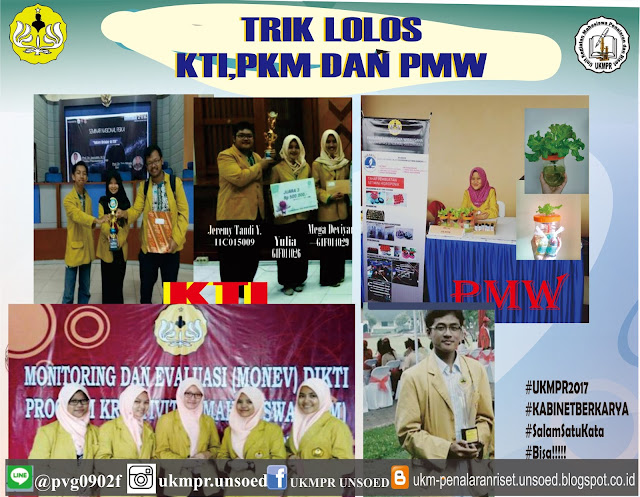KAJIAN UKMPR 2
📖[KAJIAN UKMPR]📖
Hallo guys
Apa kabar semuanyaaa???
.
Siapa aja nih yang dari tadi nungguin kajian UKMPR??😁😀
.
Nah buat hari Kamis ini ada kajian yang berjudul :
"Nuclear Power, Should We Use It?"
Yuk disimak!
Semoga bermanfaat
"Nuclear Power, Should We Use It?"
Oleh
Hamzah Syahid A
Biologi, 2016.
Have you ever been in an argument about nuclear power? It’s frustrating and confusing, so let’s try and get to grips with this topic. It all started in the 1940s, after the shock and horror of the war and the use of the use of atomic bomb, nuclear energy promised to be a peaceful spin-off of the new technology helping the world to get back on its feet. Everyone’s imagination was running wild, wondering about free electricity and nuclear-powered cars, planes, or house. It seemed that this was just a few years of hard work away. One things certain is the future was atomic. Just a few years later, there was a sort of atomic age hangover. As it turned out, nuclear power was very complicated and very expensive.
Turning physics into engineering was easy on paper, but hard in real life. Also, private companies thought that nuclear power was much too risky as an investment, most of them would choose gas, coal and oil. But there were many people who didn’t want to abandon the promise of the atomic age with its exciting new technology, prospect of enormously cheap electricity and being independent of oil and gas imports. But, let’s be honest, there also people who have a secret desire to possess atomic weapon. Both reason, although is good or bad, provided a strong motivation to keep going. Nuclear power’s finest hour finally came in the early 1970s, when war in the Middle East caused oil price to skyrocket worldwide.
Now commercial interest and investment picked up at dazzling pace. More than half of all the nuclear reactors in the world were built between 1970 and 1985. But which type of reactor to build given how many different types there were to choose from? A surprising underdog candidate won the day, it was the light water reactor. It wasn’t very innovative and too popular with scientist, but it had some decisive advantages, it was available, it worked and it wasn’t too expensive. A little scientific explanation here, what does a light water reactor do? Well the basic principle is shockingly simple, it heats up water using an artificial chain reaction. Nuclear fission releases several million times more energy than any chemical reaction could do. Really heavy elements on the brink of stability, like uranium-235, get bombarded with neutrons, then the neutron is absorbed and cause instability. The result is lighter element moving so fast, some additional free neutron and energy in form of radiation. The radiation heats surrounding water, while the neutrons repeat the process with other atoms releasing more neutrons and radiation in closely controlled chain reaction. Water also play its role as moderator to control the neutron’s energy. The light water reactor became popular because it’s simple and cheap. However, it’s not the safest, most efficient, or technically elegant nuclear reactor.
The nuclear hype lasted barely a decade when Three Mile Island nuclear plant in Pennsylvania barely escaped catastrophe when its core melted in 1979. Then in 1986, Chernobly catastrophe threatened Central Europe with its radioactive cloud. In 2011 the Fukushima nuclear plant got drowned and causing disaster. All of this sparked a new discussion and concerns. While in the 1980s, 218 new nuclear power reactors went live, their number and nuclear’s global share of electricity production has stagnated since the end of the 1980s. So what’s the situation today? Today, nuclear energy meets around 10% of the world’s energy demand. There are about 439 nuclear reactors in 31 countries. About 70 new reactors are under construction in 2015, most of them are in developing country. All in all, 116 new reactors are planned worldwide. Most nuclear reactors were built more than 25 years ago with pretty old technology. More than 80% are various types of light water reactor. Today, many countries are faced with a choice; the expensive replacement of the aging reactors, possibly with more efficient, but less tested models, or move away from nuclear power towards newer (like wind and solar power) or older technology (like oil) with different cost and environmental impacts. So, should we use nuclear energy?
~
Kabinet INTEGRASI
Never Give Up !
===
Jangan lupa pantengin terus medsos UKMPR ya!
📱 Fanspage Fb : Ukmpr Unsoed
📱 Instagram : @ukmpr.unsoed
📱 Line@ : @pvg0902f
🅱 Blog : ukm-penalaranriset.blogspot.co.id
Salam Riset!!!
Sukses!!!
#kabinetintegrasi #ukmpr #unsoed #purwokerto
[MEDIA UKMPR 2018]


.png)

Komentar
Posting Komentar